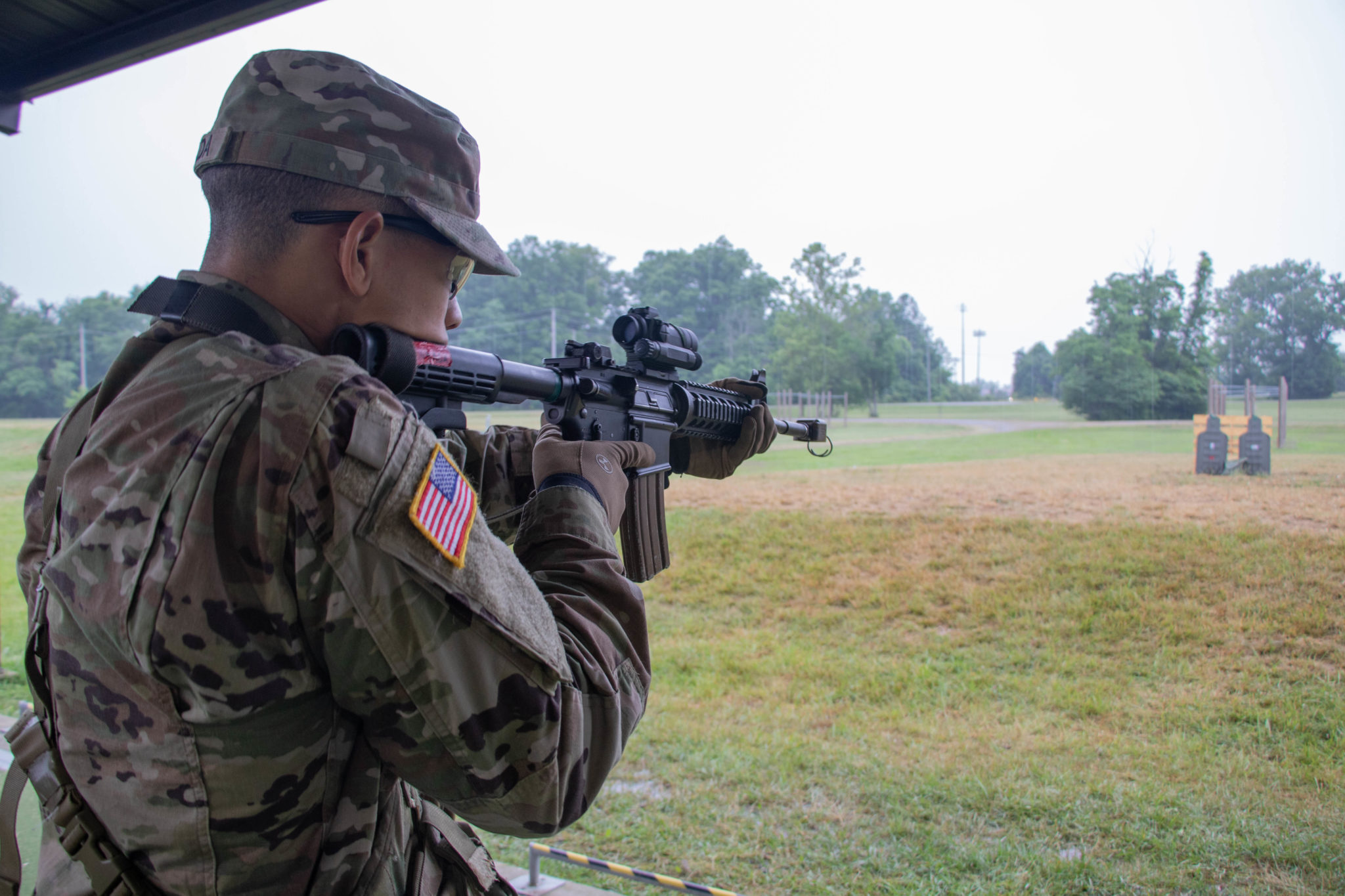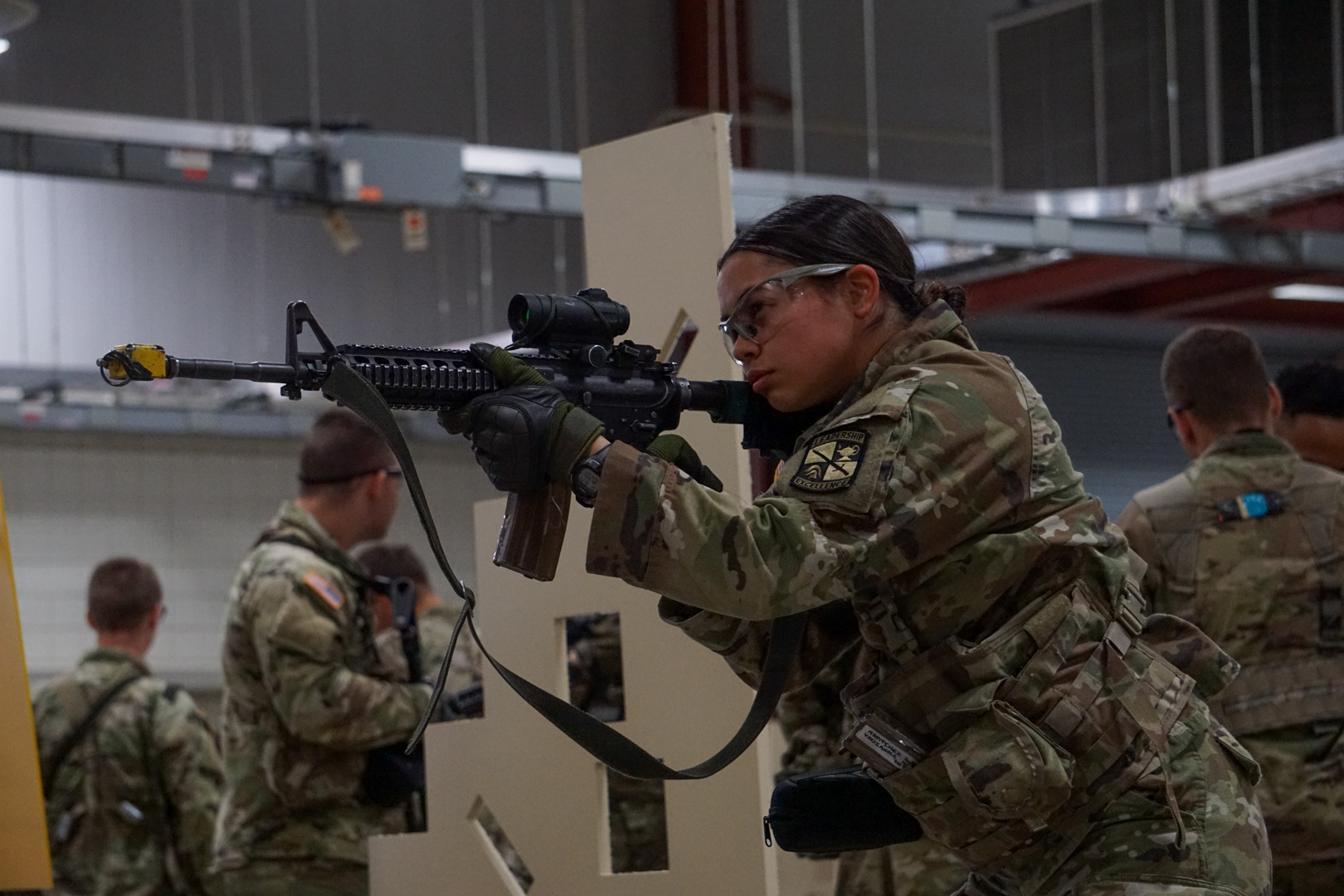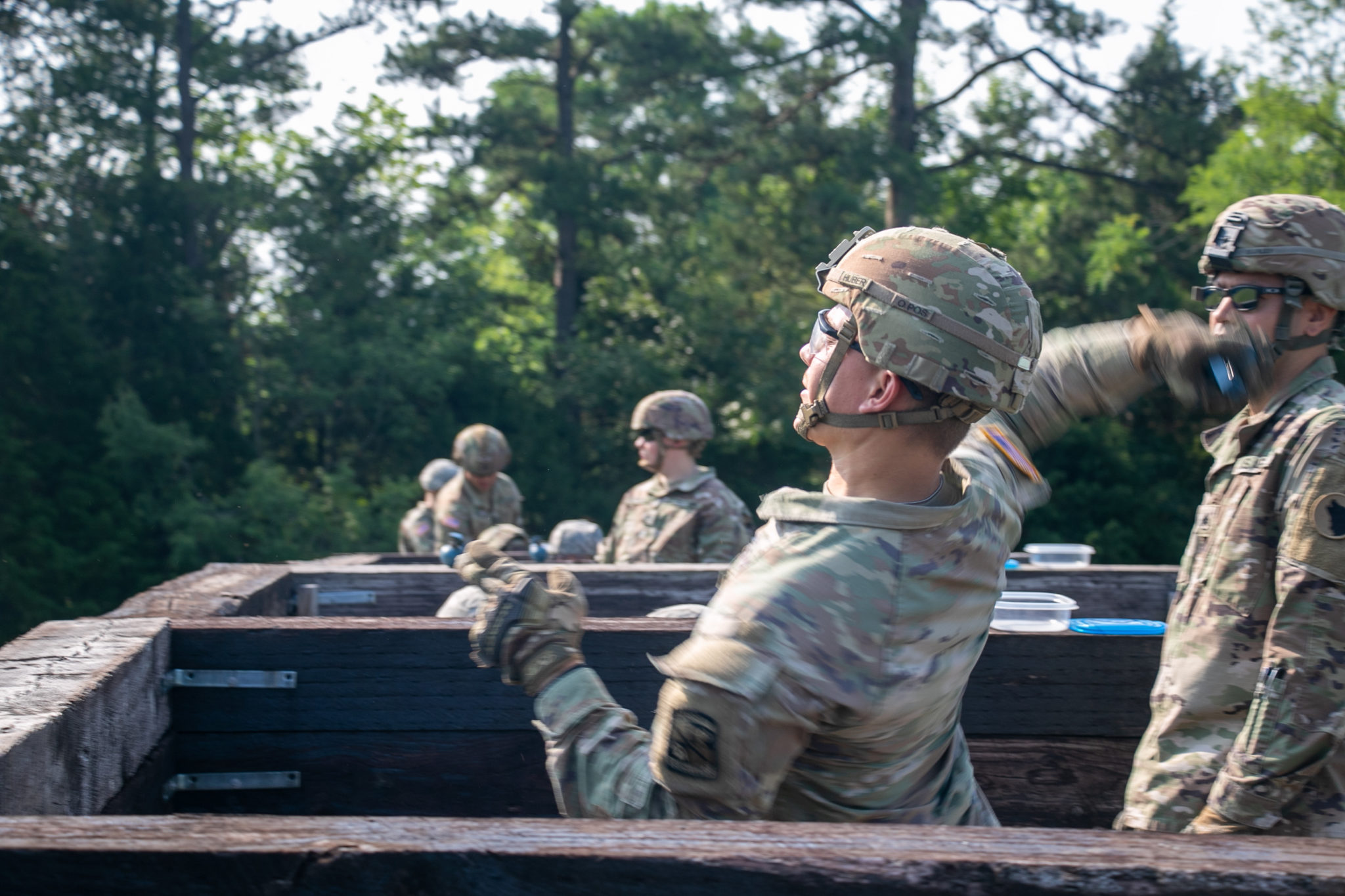MALAWI, SOUTH AFRICA – A team of eleven cadets and one cadre member from around the United States were chosen to attend a CULP, Cultural Understanding and Language Profeciency, mission in Malawi, Africa.
The cadets in the team had no idea what to expect for their first full day in country. They knew they were going to be training with the Airborne Battalion but that was about the extent of their knowledge for the first day’s agenda.

Cadet Samuel Boyles, a student from Louell, North Carolina, studying at Appalachian State, gets his pack inspected while being watched by Justin Olson, a student from Loveland, Colorado studying at Colorado State University and Karriem Davis, a student from Brooklyn, New York, studying at Howard University
Photo by CULP Malawi
“I went in having little expectations,” said Shyla Tibert, an International Studies major at the University of North Carolina at Charlotte. “I expected the training to be more with a ‘rag-tag’ group and the first day really surprised me.”
The cadets from day one were put into a mini- airborne training, which included a pt test, performing parachute landing falls, learning how to pack a parachute, and running an average of 8 to 12 miles every day.
“Going into the week, I expected to be shown the Airborne Battalion’s training equipment and have their uses demonstrated,” said Ian Mathews, a Political Science studying at Temple University in Mohnton, Pennsylvania. “I never expected to be thrown into a mock airborne training program.”
Mathews said the hardest part of the week was not working with the Malawian soldiers, but actually working with the other United States soldiers.
“We are a group of cadets thrown into a team with a small window of time to go through the stages of team development,” Mathews said. “We had stresses of an unfamiliar environment, hot temperatures and physically demanding training. We all had moments of frustration and de-motivation, but we pushed one another to keep going and work harder.”
After five days of the program, the cadets were congratulated with a game of “football” and a hike up a few hills that overlooked the town they were staying in, Salima, and Lake Malawi.
Playing football was the most memorable part for Mathews.
“There were no training blunders or comical language barriers,” said Mathews. “It was just football, and everyone could get behind it,”
After training with the Paratroopers, the cadets started their training at MAFCO, the Malawian Armed Forces College. Here, they trained alongside other cadets going through the six month long program of becoming an officer.
Every day, the team got lessons in weapons the Malawian forces use and other field craft lessons. About every 30 minutes, the class would get a two to five minute break to get to know the other soldiers around them.
Getting to know these cadets on the breaks was Brian Iversen’s favorite part of this course.

Cadet Justin Olson learns how to take apart the K2C rifle alongside Malawian cadet Cosmas.
Photo by CULP Malaw
“This was priceless time that allowed me to ask questions to other cadets, teach them something, or even just share a laugh. It’s where we made connections,” Iversen, an Economics major studying at Kansas State University, said.
“Being able to make connections is an important skill to master, especially in the military,” said Iversen.
Iversen said it also surprised him how proud these soldiers were to serve. The soldiers here are non-partisan and are thankful to be able to serve their country by being in the military.
Cosmas, one of the cadets that attends MAFCO, said, “The best sacrifice someone can give to their family or their country is to join the military.”
After the mission was over, Tibert said the Malawi soldiers had taught her about a collective mindset.
“Everything you do here is not about you,” Tibert said. “It’s about contributing to the greater good.”
They are very selfless people that always have the community or their family in mind, Tibert said. She also said this trip had taught her to always go into situations with an open mind, because people would tend to surprise you.
“Would I ever go into combat with these soldiers?” Mathews said. “Without hesitation.”




